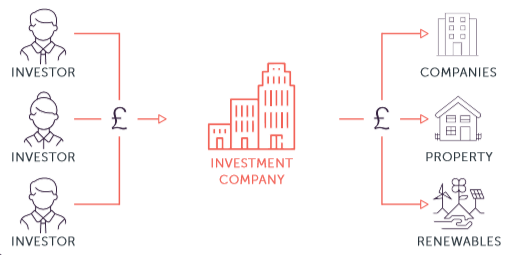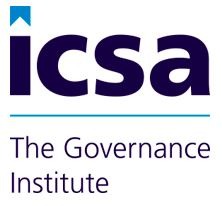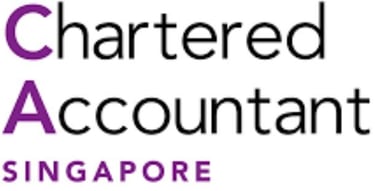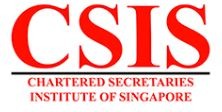Investment Holding Companies in Singapore
An overview of Singapore’s tax treatment for investment holding companies managing global portfolios.
TAX PLANNING 税务筹划
Adept Tax
10/23/20255 min read


Investment Holding Companies in Singapore 🏢
An investment holding company is a company whose principal activity is owning investments (such as shares or properties) for the long-term and deriving (passive) investment income such as dividends, interest or rental income. Understanding the specific rules for an investment holding company Singapore is crucial for compliance.
This publication is provided for general information purposes only and is not intended to cover every aspect of the topics with which it deals. It does not constitute legal, tax, or accounting advice. Readers should not rely solely on this content for making decisions without consulting a qualified professional. Reading our articles does not create an attorney-client relationship between the reader and our firm.
While we strive for accuracy, laws and regulations change frequently, our articles may contain links to external websites or resources. We do not endorse or guarantee the accuracy of such content. We make no representations, warranties or guarantees, whether express or implied, that the content in the publication is accurate, complete or up to date. Use the information at your own risk.
Before taking any action based on our articles, consult a qualified attorney, tax advisor, or accountant pertaining to your unique situation. Always seek legal advice to ensure compliance with local regulations and ethical standards.


Our Tax Advisory & Compliance Services
At Adept Corporate Services, we provide tailored tax advisory and compliance solutions designed to help investment holding companies navigate Singapore’s tax landscape with confidence. Our team ensures your structures remain tax-efficient, compliant, and aligned with regulatory expectations. From corporate tax filings and IRAS submissions to strategic tax planning across jurisdictions, we deliver practical, timely, and value-driven guidance—so you can focus on growing your investments while we handle the complexities of taxation.
What Sets Us Apart 💼✨
• Exceptional Talent - Our team includes Chartered Secretaries from Tricor, Intertrust, and Vistra, and accredited accountants or CPAs with experience at TMF, Citco, State Street, and Big Four firms. They deliver with care, diligence, and skill under our Code of Professional Conduct.
• Happy Team, Happy Clients - We believe satisfaction starts from within — with zero staff attrition and zero client churn (apart from selective disengagements), most of our clients return or come through referrals from existing clients.
• Personalized & Responsive - We provide personalized service and fast turnaround, staying connected via WeChat, WhatsApp, and Teams to meet the needs of our clients.
• Strong Governance & Compliance - We are ISAE 3402 certified for process controls, and licensed in Singapore, Hong Kong, and China, with Malaysia underway.
• Partner-Owned Independence - Being privately owned by partners who share the same values allows us to deliver big-firm quality without private-equity premiums — maintaining a personal, professional touch.
There is a difference before an investment holding company and an investment dealing company. The investment dealing company refers to a company that owns investments such as properties and shares as trading stock to derive trade income from the purchase and sale of these investments (e.g. gain on sale of real properties and shares).
Unlike an investment holding company, the company's principal activity is that of investment dealing. There is a difference in tax treatment for the two companies, a key topic in any Singapore corporate tax guide. We will cover the key tax treatment for investment holding companies below.
✅ Key Tax-Treatment Highlights
Deductible Expenses:
The company can claim deductions for expenses that are attributed the investment income — such as loan interest on the acquisition of the real estate property, insurance for rental properties, audit fees and secretarial fees. ✅
Expense Cap:
However, please note that the total amount of deductible expenses should not exceed 5% of the company’s gross investment income. This is because, investment holding companies are not carrying on a trade and only a reasonable amount of expenses is allowed. ⚠️
Allowable Expenses:
The allowable deductible expenses are direct expenses (e.g. MCST management fee, cost incurred in collecting rent), statutory and regulatory expenses (e.g. bank charges, accounting & audit fees) and some other general business expenses (e.g. office rental, staff salaries) 💡
Non-Deductible Expenses: Capital expense
and expenses not related to income producing investments are generally not deductible. Some examples are:
o Stamp duty and legal fees incurred in acquiring the investment 🚫
o Interest expenses incurred to acquire shares 🚫
o Purchasing of assets like air-con, furniture etc (initial purchase is considered to be capital) 🚫


Loss Carry-Forward:
The company cannot carry forward any unutilised losses to set off the income in the future years of assessment. 🔄
Capital Allowance:
The company cannot claim capital allowance as it is not carrying on any trade or business. Only fixed assets purchased to replace existing fixed assets can be claimed as deductible expenses. 🏦
Tax Exemptions:
The company is not entitled to the “New Start-Up Company” tax exemption scheme, though it may still qualify for the “Partial Tax Exemption” scheme. This is a key distinction in Singapore tax exemption rules, as not all company tax exemption Singapore schemes apply. Specifically, the corporate tax exemption Singapore for start-ups is unavailable. 📜
Group Relief:
The company cannot transfer current year unutilised losses arising from the excess of expenses over investment income under the Group Relief system to other companies in the same group. But the company may transfer current year unutilised donations, Industrial Building Allowance, Land Intensification Allowance to other companies in the same group under Group Relief system. 🤝
Rental Expense Deductions:
From Year of Assessment 2022, IRAS investment holding company guidelines allow a deduction for agent’s commission, advertising, legal fees, stamp duty incurred to obtain, grant, renew or extend a lease for first and subsequent tenant for a property can be deducted against the rental income of the property, subject to certain conditions. 🏠
📌 Practical Implication for Corporate Structuring
For a Singapore entity whose primary function is holding investments (e.g., regional holding of group subsidiaries, property assets or shares), the investment holding company tax guide provides clarity on what expenses can / cannot be deducted — helping ensure compliance and optimise tax position.
As a guide to work out the income that is chargeable to tax for your investment holding company Singapore, you may refer to other worked examples provided by the IRAS (Singapore tax office). 🎯
Reach out to us for a conversation
Every business is unique and we love to hear about your business objectives so that we can offer sound & bespoke advice on how to achieve them. Leave your contact information, we will get back to you shortly.
Or simply pick up the phone, we are also reachable over WhatsApp too. We believe in delivering exceptional service with a personal touch, and not rely solely on chatbots and automated emails, we make it easy for you to connect with real people who understand your needs.
When you engage with us, you get direct communication, prompt responses, and personalized solutions—because great service starts with real human connections.
ADVISORY SERVICES










Adept Corporate Services (ACS) is a leading corporate service provider, offering comprehensive business solutions, including entity formation, corporate secretarial compliance, bank account opening (including offshore entities), corporate accounting, fund administration, tax compliance, work visa applications, and payroll services.
Singapore| Malaysia | China | Hong Kong SAR | USA | British Virgin Islands | Cayman Islands
新加坡 | 马来西亚 | 中国 | 香港特别行政区 | 美国 | 维京群岛 | 开曼群岛


©2021-2025 Adept Corporate Services | All Rights Reserved



